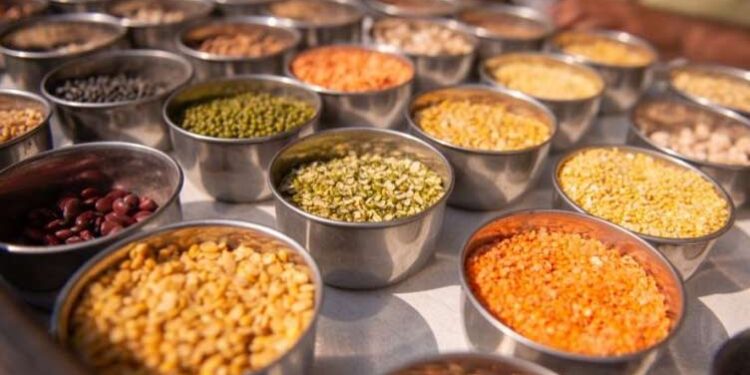ISLAMABAD, Oct. 29: The Competition Commission of Pakistan (CCP) has finished a draught study to address market distortions and encourage efficiency and competition in the value chain of ten essential food commodities, including onion, edible oil and ghee, potato, poultry, wheat, sugar, milk, rice, tomato, and pulses. A typical household spends 63% of its monthly food budget on these commodities.
The Economic Coordination Committee was inspired by Pakistan’s double-digit inflation from November 2021 to monitor food inflation, and the CCP was given a mandate by the National Price Monitoring Committee (NPMC) to investigate the causes of price increases in critical commodities.
According to a press release issued here on Saturday, the CCP chose 10 significant food items from a list of 51 important commodities in the Sensitive Price Index (SPI) for the study.
The CCP has shared the draught report and held consultation sessions with stakeholders, including representatives from the agriculture and food ministries, research institutions, and other associated departments from Punjab, Sindh, and Khyber Pakhtunkhwa.
With regard to the study’s recommendations, the CCP Chairperson, Rahat Kaunain Hassan, and her team—which also included Member Mujtaba Ahmed Lodhi and other top officers—held frank meetings with the stakeholders.
The meeting with the Balochistani stakeholders will take place within the next month. The study will be completed with comprehensive recommendations to the government of Pakistan to resolve market distortions and enhance efficiency in the value chain of these commodities after considering feedback from stakeholders.
The combined price of the 10 commodities indicated above increased by 35% in July 2022 compared to July 2021. The same period saw the largest price increases for masoor (92%), onions (89%), edible oil (77%) and grains (52%).
The analysis examines the root causes of price increases and supply chain problems, including ineffective laws and regulations that distort markets, stifle competition, and discourage private investment, in addition to the paltry attempts to foster research, innovation, and technology utilization to enhance crop yield and productivity.
The report recommends that the government move its policy priorities from the principal crops of sugar and wheat to other equally important ones with export potential, such as pulses, other cereals, oil seeds, and vegetables.
It suggests pursuing research and development (R&D) initiatives in high yield varieties and enlisting the help of provincial agriculture extension departments, seed development departments, and the federal Seed Certification and Registration Department to develop mechanisms for the distribution of high yield seed varieties, R&D on high yield crops, and raising awareness of high yield seeds and genetically modified crops and their cultivation.
The report urges a complete redesign and an increase in the quantity of Pakistan’s 345 agriculture produce markets (APM), which include both public and private markets (grain and fruit and vegetables).
The report points out that barriers to entry for traders to access global marketplaces are created by protectionism through export-import bans and tariffs. For instance, if wheat and sugar are protected against imports with tariffs of 60% and 40%, respectively, domestic consumers will pay more, but there will also be little incentive to develop varieties with higher yields.
The report stresses that adequate agricultural financing is a must for a productive agricultural industry. It suggests giving farmers more access to financing for all varieties of crops and producing regions. Agriculture e-commerce has considerable potential due to high mobile penetration and the fact that 88% of the population has access to the internet or broadband. As a result, it is advised that the government create an environment for agri-e-commerce and inform farmers about its opportunities.
The report advises the government to support contract farming, which will foster agricultural mechanization and economies of scale, enhance access to financing for both farmers and processors, and be advantageous for banks and DFIs by lowering operating expenses and post-disbursement monitoring.
While emphasising the importance of storage for food security, the study recommends the government to make adequate arrangements for storage of wheat, rice, seeds of pulses, and oilseed crops. To avert the crisis of food security and food price volatility amid the flood situation in Pakistan, Strategic Grain Reserves (SGRs) can be a useful policy tool where target disbursement is made to needy people.
Information in this article comes from third party providers. This website does not provide explicit or implied warranty for such information and is not liable for any losses directly or indirectly caused by using such information.


















